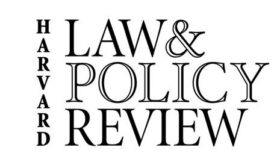Jake Laperruque
In a recently released piece focusing on New York Congressman Anthony Weiner, the magazine “Moment” wrote: “As part of a promise to his Twitter followers, he recently released a photo of himself . . . .”
Any guesses on how that sentence ends? It’s “…on his big day as an awkward-looking 13-year-old boy, complete with a self-described 1970s Jewfro.” The story came out a few days before Weiner-gate began; at that time it was nothing more than a flattering bio of the man who was gaining frontrunner status as the next mayor of New York City.
In the realm of politics, it’s sometimes shocking how quickly things change. But while Weiner-gate reaches its conclusion, the impact that this sexting scandal will likely have on politics and the Internet is just beginning. Here’s a few predictions about the changes we can expect:
The New Character Limit for Pols: O
It’s not surprising that Weiner hasn’t tweeted since he literally got caught with his pants down (although that hasn’t stopped his page from gaining roughly 30,000 new followers). However, from now on all politicians will likely be restricted, regardless of their online conduct.
When I managed campaigns, I forbid my candidates to tweet. The reason for this wasn’t the fear of a perverse scandal like Weiner-gate, but rather an innocent misstatement that becomes politically damaging. Everyone says things that are inappropriate – or at least can be portrayed as such – in casual conversation. This is all the more true for politicians, who must constantly cater to a wide range of constituents, stay consistent on an endless array of policy stances, and maintain a carefully crafted image as a public figure. Twitter takes the ever-dangerous casual, quickly forgotten, conversatio and permanently records it in a publicly accessible place. This incident shows how permanent tweets can be, and how much damage they can cause. It’s a lesson politician operatives will not forget.
A Watchful Eye on Social Networks
One of the most disturbing parts of Anthony Weiner’s scandal is the fact that he nearly got away with it. By invoking the boogieman of the Internet – an anonymous hacker – Weiner almost brought the incident to an uneventful end. It was only when he later acknowledged that the photo might be of him (while Weiner lied about sending out lewd photos, apparently refusing to take credit for his bulging briefs was something he just couldn’t bear to do) that things spun out of control, leading to the true story and his resignation.
The public demands accountability and transparency from politicians in a variety of ways, from campaign activities to personal finances. The Internet, with its array of political uses, should be no exception. Weiner’s faux-hacker is just one of many ways this medium can be abused: without regulation, politicians can manipulate the image of their opponents, magnitude of their support, and the basic facts of their identity. This scandal shows the need for regulation, transparency, and openness.
New Media Mischief
Weiner-gate unleashed a whole new type of scandal on the American public. And while the substance of political scandals hasn’t varied all that much, the means of unveiling it are entirely new. Gone are the days of private investigators, sneaky phonetaps, and hidden cameras. Now all you need is a laptop.
Even with heightened scrutiny, expect an unprecedented level of foul play online. While politicians themselves might be unwilling to engage in illicit activity, there are always outside supporters who are happy to abandon civility for their cause. With hacktivism at an all time high, it seems highly likely that individuals or organizations will attempt to use hacking to uncover elected officials’ dirty secrets, and use them to achieve political goals. And, given the example of Anthony Weiner’s downfall, it appears that such efforts are bound to succeed.
